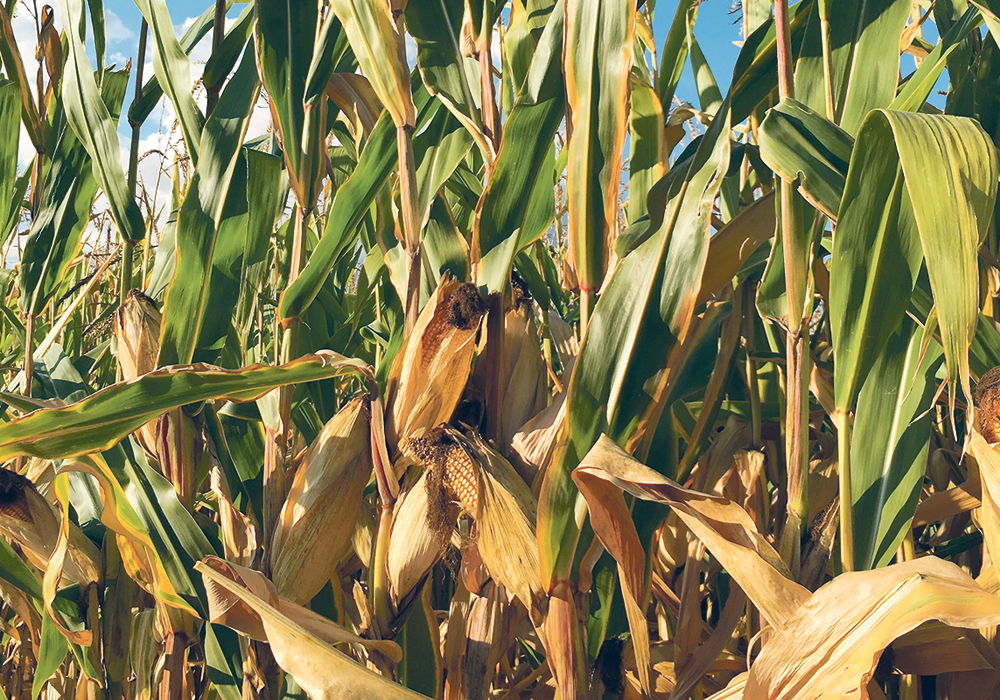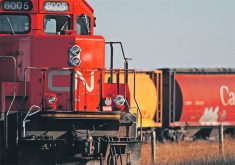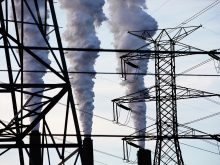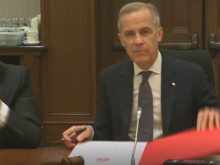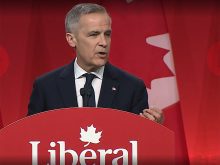Keystone Agricultural Producers says Manitoba producers paid an extra $2 million because of the federal program
Manitoba farmers may have spent an additional $2 million on grain drying because of the carbon tax.
The extra cost is unfair to producers, said Bill Campbell, president of Keystone Agricultural Producers, because Manitoba farmers have to dry their grain and they compete with farmers from around the globe.
“Margins are very tight as it is without this added cost,” said Campbell, who spoke to the media at Ag Days, a trade show held the third week of January in Brandon. “We realize the American producers are not paying that carbon tax. So, it just puts us at a disadvantage.”
Read Also

Trump’s tariffs take their toll on U.S. producers
U.S. farmers say Trump’s tariffs have been devastating for growers in that country.
Campbell and thousands of other farmers are frustrated with the federal government and Agriculture Minister Marie-Claude Bibeau. So far, the feds haven’t exempted grain drying from the $20 per tonne levy on greenhouse gas emissions.
Last year, the federal government imposed the $20 carbon tax on provinces that lack a federally approved model to fight climate change. The decision affected Ontario, Manitoba, Saskatchewan and New Brunswick.
On Jan. 1 the federal government imposed the carbon tax on Alberta.
The levy increases the price of gasoline, natural gas and propane.
Farmers may be angry with the ag minister, but other government departments are in charge of the carbon tax, said a spokesperson for Bibeau.
“Questions regarding the carbon pricing plan … should be directed towards ECCC (Environment and Climate Change Canada) and Finance,” the spokesperson said in an email.
“However, we recognize that this harvest season has been challenging for farmers and we are working with partners to find practical solutions.”
The spokesperson added the “pollution pricing policy,” or carbon tax, does include exemptions and programs for farmers.
“(It) exempts many fuels used in the agriculture industry — including gasoline, diesel fuels for on-farm use, and fuels obtained from card lock facilities. The federal system also includes support for small- and medium-sized businesses, including farms, which helps farmers make investments to become more energy efficient, saving them money while cutting pollution.”
Previously, Bibeau said she needed more information to understand how the carbon tax affected farmers.
That prompted KAP to survey some of its members.
It surveyed corn growers in Manitoba and determined the carbon tax added $3.69 per acre to the cost of drying corn, following last year’s harvest.
For the average producer, with 500 acres of corn, the cost of fuel for drying was about $14,145. The carbon tax added $1,722 to their bill.
Overall, the carbon tax increased the drying cost by $1.7 million.
The KAP data doesn’t include drying of damp wheat, canola and other crops, which means the total figure is higher.
“We’re probably in excess of $2 million that we’ve taken out of the Manitoba farm economy, for the carbon tax,” Campbell said.
KAP will continue to collect grain drying bills and other information from growers to improve the quality of its data.
Meanwhile, last week, the Green Party of Canada said grain drying should be exempt from the carbon tax. A Green Party representative said extremely wet weather caused financial hardship for farmers and tax relief is “justified and necessary.”
The federal government will continue to study grain drying and all aspects of the carbon tax, the Bibeau spokesperson said.
“The government has committed to do an early review of the pollution pricing system in 2020 focused on competitiveness issues in trade-exposed industries, such as agriculture.”


